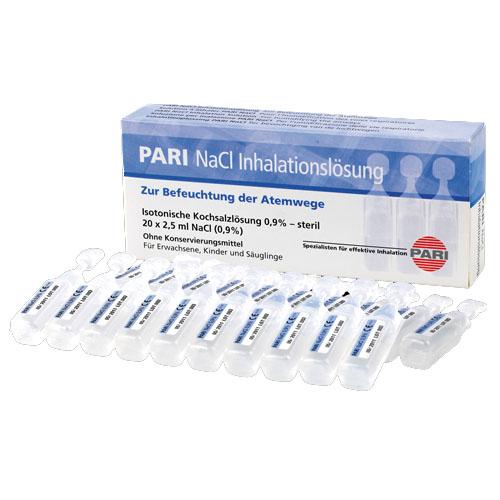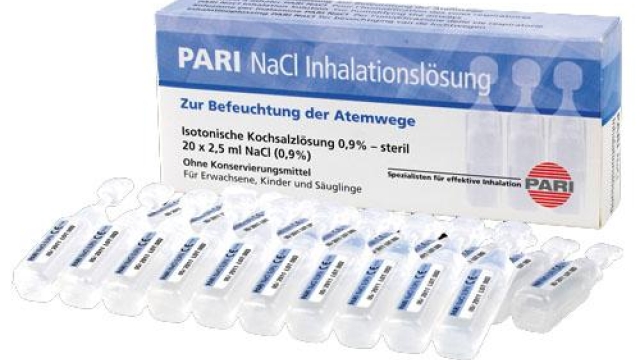
Inhalation devices have become essential tools in the management of various respiratory conditions, revolutionizing the way patients access life-saving medications. As the demand for more effective and user-friendly devices grows, the focus on innovative design and technology is more critical than ever. Companies like Aptar are at the forefront of this evolution, continuously pushing the boundaries of what these devices can achieve.
https://aptar.com/pharmaceutical/delivery-routes/inhalation/
The future of inhalation devices promises exciting advancements aimed at improving patient outcomes and enhancing the overall user experience. With an increasing emphasis on personalized medicine, these innovations are tailored to meet the unique needs of individuals, making treatments more efficient and accessible. As we explore the landscape of inhalation devices, we delve into the breakthroughs that will shape the future of respiratory care.
Overview of Inhalation Devices
Inhalation devices play a crucial role in the administration of medication for respiratory conditions such as asthma and chronic obstructive pulmonary disease. These devices are designed to deliver drugs directly to the lungs, providing rapid relief and targeted treatment. The effectiveness of inhalation devices depends on various factors, including the type of device, the formulation of the medication, and the patient’s ability to use the device correctly.
Advancements in inhalation technology have led to the development of a variety of devices, including metered-dose inhalers, dry powder inhalers, and nebulizers. Each type offers distinct benefits and is suited for different patient needs. Metered-dose inhalers are compact and portable, while nebulizers provide continuous medication delivery, making them ideal for patients with severe symptoms. Understanding the strengths and limitations of each device is essential for optimizing patient care.
Companies like Aptar are at the forefront of innovation in this field, continually enhancing the design and functionality of inhalation devices. Their commitment to research and development has resulted in improved delivery systems that increase the efficiency and comfort of inhalation therapies. As the demand for effective respiratory treatments grows, the innovation within inhalation devices will play a vital role in shaping the future of pulmonary medicine.
Aptar’s Innovative Solutions
Aptar has established itself as a leader in the field of inhalation devices, offering a diverse range of innovative solutions that cater to the evolving needs of patients and healthcare providers. Their commitment to enhancing patient experience is evident in their user-friendly designs, which simplify the administration of medication while ensuring accurate dosing. By leveraging advanced technology, Aptar’s inhalation devices optimize drug delivery to the lungs, maximizing therapeutic efficacy and improving overall health outcomes.
One of the key aspects of Aptar’s innovation is their focus on smart inhaler technology. These devices are equipped with connected features that enable seamless data tracking and adherence monitoring. By providing real-time feedback to patients and caregivers, Aptar’s smart inhalers help to bridge the gap between medication adherence and disease management. This data-driven approach empowers patients to take control of their treatment, fostering a more proactive relationship with their health.
Moreover, Aptar is dedicated to sustainability in their product development. They actively seek to incorporate eco-friendly materials and manufacturing processes in their inhalation device designs. By reducing the environmental impact of their products, Aptar not only meets regulatory standards but also addresses the growing demand for sustainable healthcare solutions. Their innovative mindset continues to drive advancements in inhalation therapy, ensuring that they remain at the forefront of this essential medical field.
Integration of Technology in Inhalation
The integration of technology in inhalation devices has revolutionized the way medications are delivered to patients. Modern inhalers now come equipped with smart features that track usage patterns, ensuring adherence to prescribed regimens. These smart devices can connect to mobile applications, allowing patients to receive real-time feedback on their inhalation technique and dosage. This technology not only enhances patient engagement but also fosters better communication between healthcare providers and patients, creating a more personalized approach to treatment.
Advancements in materials and design have also played a crucial role in the development of inhalation devices. Companies like Aptar are at the forefront, utilizing cutting-edge technology to improve the efficiency of medication delivery. Innovative nozzle designs and aerosol generation techniques have led to more effective dispersal of medication, ensuring that patients receive the intended dose directly to their lungs. By focusing on the science of inhalation, these devices minimize waste and optimize therapeutic outcomes.
Furthermore, the incorporation of sensors and artificial intelligence into inhalation devices is paving the way for the future of respiratory care. AI algorithms can analyze patient data to predict exacerbations and suggest proactive measures, thus enabling timely interventions. This not only enhances patient safety but also reduces hospital visits, ultimately decreasing healthcare costs. As technology continues to evolve, the potential for more sophisticated inhalation devices grows, signaling a new era in respiratory therapies.
Future Trends in Respiratory Care
The landscape of respiratory care is evolving rapidly, driven by advancements in technology and an increased understanding of patient needs. One of the most significant trends is the rise of smart inhalation devices that incorporate digital health technology. These devices not only deliver medication but also collect and analyze data to track a patient’s usage and adherence. This data can provide valuable insights for healthcare providers and empower patients to manage their respiratory conditions more effectively.
Another emerging trend is the focus on personalized medicine within respiratory care. Innovations in inhalation devices allow for customization based on individual patient profiles, including factors such as age, weight, and specific health conditions. Companies like Aptar are leading the way in developing devices that cater to these individual differences, ensuring that each patient receives the most effective treatment tailored to their unique needs. This shift towards personalization is expected to enhance treatment outcomes and increase patient satisfaction.
Telehealth is also playing a crucial role in the future of respiratory care, enabling remote monitoring and consultation for patients. With the integration of telehealth platforms, inhalation devices can be monitored in real-time, allowing healthcare providers to make timely interventions. This has become particularly important in managing chronic respiratory diseases, providing patients with continuous support while minimizing the need for in-person visits. As technology continues to advance, the fusion of inhalation devices with telehealth solutions is set to revolutionize the management of respiratory conditions.



